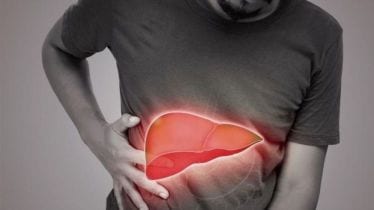A new study has found that three out of five liver cancer cases worldwide could be prevented with a few important changes: reducing obesity, cutting down on alcohol, and increasing hepatitis vaccinations. The findings come from The Lancet Commission on Liver Cancer, which warns that without action, the world could see a near doubling of cases and deaths from liver cancer by 2050.
A silent but deadly cancer
Liver cancer is the sixth most common cancer in the world and the third leading cause of cancer deaths. In 2022, about 760,000 people died from it. By 2050, that number is expected to rise to 1.37 million.
The study estimates that if countries adopt its recommendations, new liver cancer cases could be reduced by 2 per cent to 5 per cent every year. This could prevent up to 17 million cases and save as many as 15 million lives in the next 25 years.
Professor Jian Zhou from Fudan University in China, who led the study, said:
“Liver cancer is one of the most difficult cancers to treat, with survival rates as low as 5 per cent in some regions. Without urgent steps, the burden will almost double in the coming decades.”
Why are cases increasing?
One of the fastest-growing reasons is fatty liver disease, which is linked to rising obesity levels. Today, about one in three people in the world is estimated to have a condition called metabolic dysfunction-associated steatotic liver disease (MASLD). This happens when too much fat builds up in the liver.
Most people with MASLD don’t develop serious problems. But 20 per cent to 30 per cent go on to develop a more dangerous form called MASH (metabolic dysfunction-associated steatohepatitis). This can cause liver scarring and, in some cases, cancer. The report predicts that liver cancer cases linked to MASH will rise from 8 per cent in 2022 to 11 per cent in 2050.
Alcohol is another major factor. Liver cancers caused by alcohol are expected to increase from 19 per cent of cases in 2022 to 21 per cent in 2050.
However, cases linked to hepatitis B and C, two viruses that directly affect the liver, are expected to decline slightly thanks to vaccination and better treatment. Still, hepatitis B remains a huge problem, especially in China, which currently accounts for more than 40 per cent of liver cancer cases worldwide.
Who is most at risk?
Experts say the rise in liver cancer is linked not only to obesity and alcohol use but also to ageing populations and global population growth. Africa is likely to see the maximum increase in new cases.
Professor Hashem B. El-Serag from Baylor College of Medicine in the US, a co-author of the study, explained: “Earlier, liver cancer was seen mostly in people with viral hepatitis or alcohol-related liver disease. But now obesity and fatty liver are quickly becoming major drivers of this cancer.”
What can be done?
The commission has given several recommendations to help reduce future cases. These include:
- Vaccination: Expand hepatitis B vaccination programs and screen all adults.
- Alcohol Control: Introduce minimum pricing on alcohol and add warning labels.
- Healthy Eating: Consider sugar taxes to discourage unhealthy diets that raise obesity risk.
- Early Detection: Invest in screening to catch liver damage and cancer earlier.
- Better Care: Improve palliative care for patients with advanced liver cancer.
Professor Valerie Paradis from Beaujon Hospital in France said there is an urgent need to raise awareness. “Liver cancer is very hard to treat compared with other cancers. But the good news is that its risk factors are well known, which means we can prevent many cases.”
Experts point to Japan as an example where liver cancer death rates have fallen due to strong public health policies. These included widespread screening and prevention programs.
Dr Matt Hoare, a liver specialist at the University of Cambridge, said his team is working on DNA sequencing studies to identify patients most likely to develop liver cancer. This could allow doctors to step in earlier.
How to prevent liver cancer?
Doctors say prevention remains the most powerful tool against liver cancer. Steps people can take include:
- Maintaining a healthy weight
- Eating a balanced diet and being physically active
- Reducing alcohol intake
- Getting vaccinated against hepatitis B
- Going for regular checkups if at risk
Without changes, experts warn that millions more people will develop liver cancer in the coming decades. But with timely action, millions of lives can also be saved.
